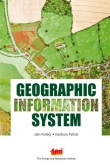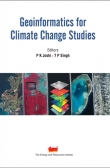Tectonics of the eastern Continental Margin of India
Book Details
Passive continental margins are formed within a single lithospheric plate in which the continental crust adjoins the oceanic crust. Assessment of the geological potential of these margins requires a comprehensive knowledge on the history of the ocean—from the time of pre-rifting events to the present.
Tectonics of the Eastern Continental Margin of India presents the different aspects of a passive margin such as its evolution, tectonics, and associated hazards, taking the Eastern Continental Margin of India (ECMI) as a case study. It discusses the passive margin and focuses on its origin, morphology, structure, and exploration potential; describes the major structural lineaments delineated from the geophysical data over the ECMI; and attempts to explain the geodynamic evolution of this passive margin. A preliminary estimate on the seismic hazards associated with ECMI is also presented in the book.
Key Features
-
• Based entirely on data collected over the ECMI
• Comprehensive presentation on the passive margins of India
• Useful for students of geosciences and in the field of marine geophysics in particular
• Will serve as a useful database for exploration agencies in their search for hydrocarbons
• Content accompanied by several tables and figures, which visually elucidates the text
Table of Contents
-
INTRODUCTION
Passive (Divergent) Continental Margins
Active (Convergent) Continental Margins
Transform Margins
Characteristics of Passive Margins
Exploration of Passive Margins
Origin of the Indian Ocean and the Bengal Fan
Evolution of the Eastern and Western Continental Margins of India
Seismo-Tectonics of the Indian Subcontinent
Peninsular or Stable Continental Region Seismicity
Importance of Studies on Passive Margins
The Eastern Continental Margin of India (ECMI): A Case Study
EVOLUTION OF THE ECMI
Introduction
Qualitative Analysis of Geophysical Maps
Structural Lineaments from Magnetic Data
Support from Gravity Data
Summary of Structural Lineaments over the ECMI
Two-Stage Evolution of the ECMI
Link-up with Gondwanaland Break-up 51
Some Ambiguities in the Proposed Theories on the Evolution 56
TECTONICS OF OFFSHORE BASINS
Introduction
Cauvery Offshore Basin
Pre-Cambrian Mega Lineaments of Cauvery Basin
Krishna–Godavari Offshore Basin
Land–Ocean Tectonic Signatures of the Krishna–Godavari Basin
Mahanadi Offshore Basin
HAZARDS ASSOCIATED WITH THE ECMI
Introduction
Puducherry Shelf, Tamil Nadu Coast
Mahabalipuram–Palar shelf, Tamil Nadu Coast
Ongole Shelf, Andhra Coast
Kakinada and Kalingapatnam Shelf, Andhra Coast
Summary on the Seismic Hazard over the ECMI
CONCLUSIONS
Evolution of the ECMI
Tectonics of Offshore Basins
Seismic Hazards over the ECMI
Click here for brochure in PDF, Click here for Poster
Keywords
You may also like...
-
 Geographic Information System
Regular Price 225.00
Special Price 203.00
Geographic Information System
Regular Price 225.00
Special Price 203.00
-
 Geoinformatics for Climate Change Studies
Regular Price 995.00
Special Price 896.00
Geoinformatics for Climate Change Studies
Regular Price 995.00
Special Price 896.00


